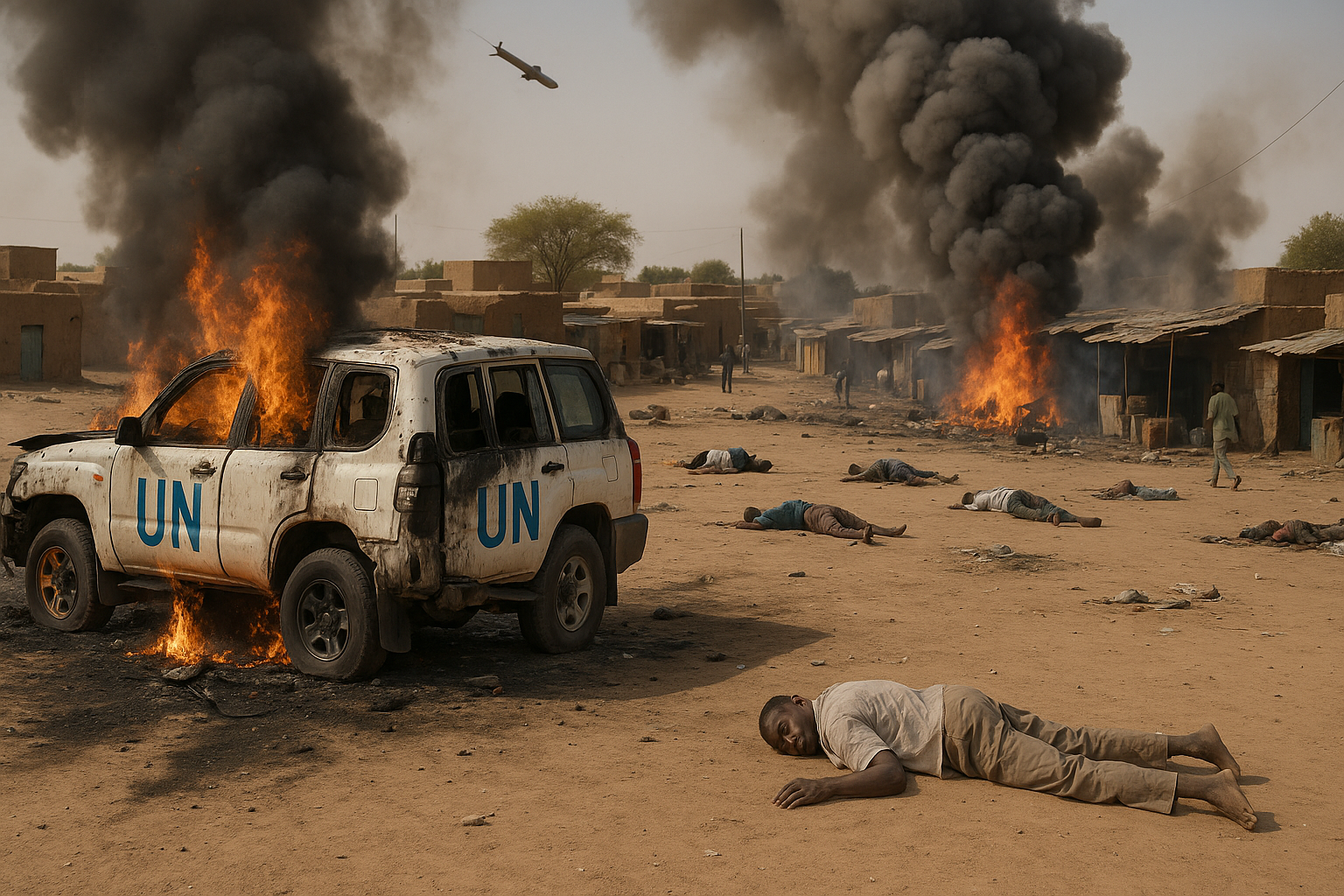UN Mission Condemns RSF Mosque Strike in Sudan as Possible War Crime
The strike represents the worst single assault on a religious site since the outbreak of Sudan’s current conflict and underscores the grave risks civilians face as El Fasher remains under siege.

The United Nations’ Independent International Fact-Finding Mission for the Sudan has issued a strong condemnation of a deadly drone strike on the Al-Safiya Mosque in El Fasher, North Darfur, on 19 September 2025. The attack, allegedly carried out by the Rapid Support Forces (RSF), struck during dawn prayers and left at least 75 worshippers dead, including children, with many more injured. Adjacent homes were also hit, compounding the destruction and civilian toll.
The strike represents the worst single assault on a religious site since the outbreak of Sudan’s current conflict and underscores the grave risks civilians face as El Fasher remains under siege.
UN Fact-Finding Mission’s Outrage
“Killing civilians, including children, while in prayer in a mosque shows a blatant disregard for the most fundamental principles of international law,” said Mohamed Chande Othman, Chair of the Mission. He stressed that accountability for such violations is urgent and unavoidable.
Expert member Joy Ngozi Ezeilo added: “Places of worship should be sanctuaries, not targets. This strike deepens the trauma of communities already suffering starvation, displacement, and sexual violence. The world cannot look away while civilians are attacked in their most sacred spaces.”
Pattern of Targeted Attacks on Religious Sites
The Mission noted that this attack is not isolated. In its report to the Human Rights Council on 8 September, it documented credible allegations of similar strikes by both warring parties:
-
RSF shelling of churches in El Fasher.
-
Sudanese Armed Forces (SAF) bombings of mosques and a Baptist church in Wad Madani and Khartoum.
These actions point to an escalating pattern of deliberate assaults on religious and cultural sites, further fracturing Sudan’s already fragile social fabric.
Legal Implications: War Crimes and Accountability
The Mission emphasized that attacks against places of worship and cultural property are serious violations of international humanitarian and human rights law and may constitute war crimes.
Under international law, including the Rome Statute of the International Criminal Court (ICC), intentionally directing attacks against buildings dedicated to religion, education, or cultural purposes—unless being used for military objectives—is a prosecutable crime. The burden lies with the attacking party to prove any legitimate military justification.
“Sudan’s rich and diverse religious and cultural tapestry forms part of its shared heritage,” said Mona Rishmawi, another expert member of the Mission. “Deliberate attacks on worshippers, mosques, churches, and cultural sites risk erasing identity and dignity. The International Criminal Court has already condemned individuals for the intentional destruction of such sites in other conflicts. Sudan cannot be an exception.”
Humanitarian Crisis Worsens in El Fasher
El Fasher, the capital of North Darfur, remains under constant siege conditions, with humanitarian access severely restricted. Civilians are facing starvation, mass displacement, and mounting violence, as both RSF and SAF intensify hostilities in urban areas.
The attack on Al-Safiya Mosque is emblematic of the broader crisis in Sudan, where civilians are increasingly targeted, not only in their homes but also in places traditionally seen as safe havens—mosques, churches, and cultural landmarks.
UN’s Call for Immediate Action
The Fact-Finding Mission has urged all parties to the conflict to:
-
Halt deliberate attacks against civilians and places of worship.
-
Protect and preserve Sudan’s religious and cultural heritage.
-
Allow unrestricted humanitarian access to besieged areas.
-
Ensure accountability mechanisms for perpetrators at both national and international levels.
“Every day of delay results in more bloodshed. Justice and protection demand immediate action,” Othman concluded.
Looking Ahead
The Mission reaffirmed its commitment to investigating violations and working with the Human Rights Council and the ICC to pursue justice. It stressed that protecting civilians and safeguarding Sudan’s cultural and religious identity must be a global priority.
Without urgent action, the cycle of impunity risks further emboldening perpetrators, leaving communities devastated and Sudan’s fragile social fabric torn apart.










